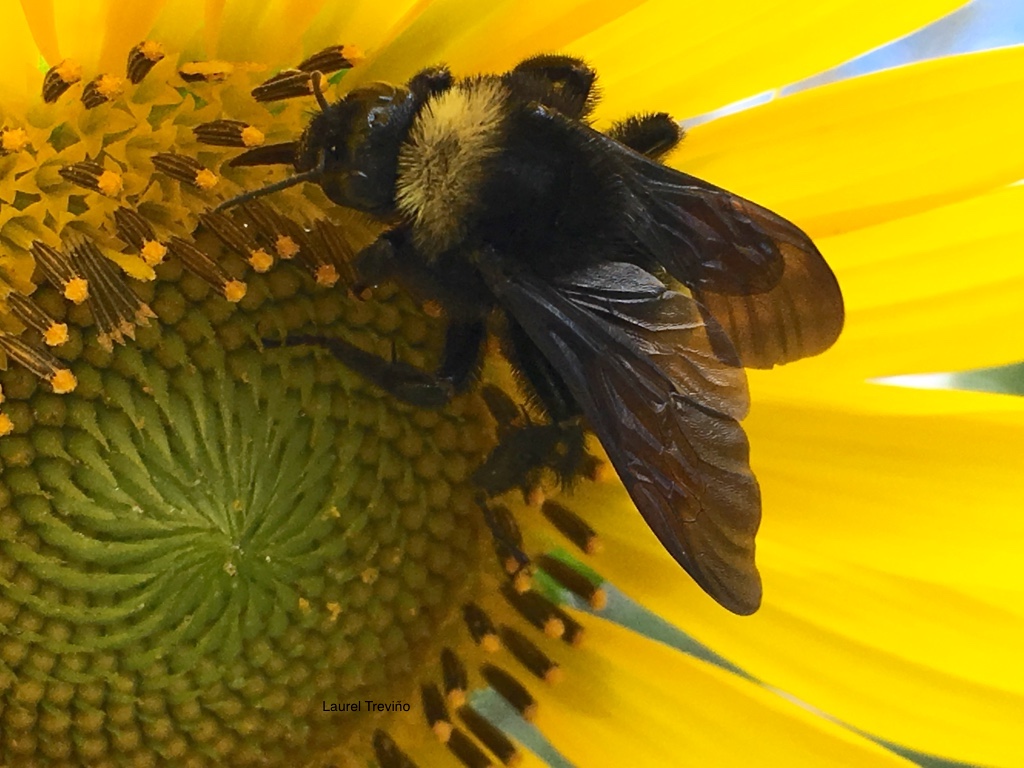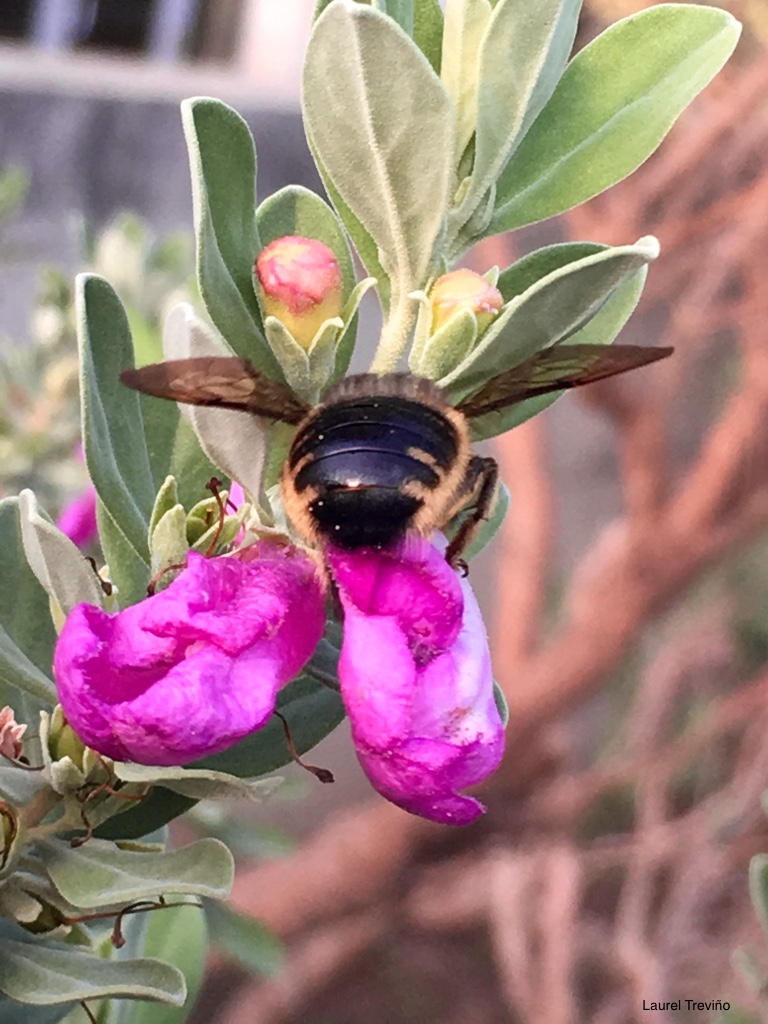Information For Landowners
Dr. Shalene Jha and Laurel Treviño (Outreach Program Coordinator) have developed landowners materials in collaboration with TPWD. Landowners or naturalists can use an array of information from their website that provides links to other websites with management guidelines for native pollinators.
In addition to the natural benefits that pollinators offer, the Texas Comptroller provides tax incentives to landowners who manage habitat for pollinator populations. The Texas Parks and Wildlife Department has pollinator management guidelines to facilitate the tax appraisal process.
Agricultural Benefits
Approximately one of every three food morsels can be traced to the work of pollinators. Native bees are effective pollinators of wild and cultivated plants. Some important Texas crops that benefit from bee pollination include watermelons, melons, cucumbers, peppers, peaches, pears, blueberries, and cotton.
By the Numbers
More than 60% of global crop species rely to some extent on animal pollination to set quality fruit. Bees contribute an economic benefit of approximately $15 billion a year to agriculture with at least $3 billion attributed to native bees alone. Studies from UT Austin show that animal-mediated cross-pollination boosts cotton yields in Texas by 17%.

Tax Incentives
The Nongame and Rare Species Program of the Texas Parks and Wildlife Department outlines native pollinator management guidelines that landowners can use to develop a wildlife management plan for tax valuation through their county appraisal district office. To qualify, a landowner must implement a minimum of three pollinator habitat management practices such as pollinator surveys.
The Jha Lab has information on pollinator habitat and survey guidelines and can also help interpret data to inform landowners of best management practices, which can be used to re-apply for tax appraisal yearly. To learn more, please visit this site.
Resources
Information For Educators and Gardeners
Dr. Shalene Jha and Laurel Treviño (Outreach Program Coordinator) have developed educational material to identify and survey native bees. Educators or naturalists can use an array of information from the Jha Lab website that provides links to other websites with conservation guidelines for native pollinators.
What Are Pollinators?
Pollinators include a wide variety of organisms that carry and deposit pollen, including bees, flies, wasps, butterflies, hummingbirds, and bats. Bees are one of the most important insect pollinators, and beyond the introduced European honeybee, include 800+ native bee species in Texas alone (~20,000 species worldwide) which are adapted to the local climate, soils, and vegetation. Not all bees live in large colonies like honeybees. Most native bee species are solitary and make underground nests. A smaller portion make above-ground nests in existing cavities or they drill holes in soft wood or grass thatch.
What Do They Do?
If you step outside on a warm sunny day, chances are you might see pollinators, such as bees. In their journey to collect nectar and pollen, native bees often transfer pollen within and between plants, playing a key role in plant sexual reproduction.

What is Their Impact?
By facilitating plant reproduction, bees play a critical role in terrestrial ecosystems. As a result of pollination, plants produce seeds and continue their plant life cycle. Plant reproduction contributes to food sources for many other animal species. More than 80% of flowering plant species and approximately 60% of all crop species depend to some extent on animals, like native bees, for pollination.
Helping Native Bees
Several things negatively affect bee populations, including loss of habitat, diseases, climate change and pesticides.
You can help save native bee populations!
-
Cultivate native flowering plants, which provide bees with their primary food source. Choose multiple plant species that flower across the season in order to maximize the food resources for bees that emerge and forage at different periods. An exhaustive list of pollinator plants and their natural history is found on the Lady Bird Johnson Wildflower Center, but three representative examples for pollinator gardens in Central Texas include the following:
Purple coneflower (Echinacea purpurea) – aster family, spring and summer bloom
Lemon Mint or Bee Balm (Monarda citrioda) – mint family, summer bloom
Partridge Pea (Chamaecrista fasciculata) – legume family, summer and fall bloom - Conserve or create nesting and overwintering habitat for bees. This entails keeping patches of bare ground for ground-nesting bees and dead wood, grass thatch or bee boxes for cavity-nesting bees.
- Maintain plants and nest sites in sunny areas sheltered from wind.
- Avoid using pesticides. While these may destroy unwanted pests, they also kill beneficial insects like bees. [90% of insects ARE beneficial!]
Visit Dr. Shalene Jha's website to learn more about native bees. Their helpful guidelines about pollinators can also be downloaded here.
Did you know?
- Bees see in the visible as well as the ultraviolet light spectrum; while humans see only in the visible light spectrum.
- Native bees can be as small as a rice grain or larger than almonds.
- Of 20,000 native bee species in the world, only six species actually produce honey.
- Most bees forage during the day but some crepuscular or nocturnal bees can see in dim light.
- Some native bees can fly for miles in a single day of foraging.
- Most solitary bees roll pollen and nectar into balls called “bee loaves,” for their young to eat.
Visit Pollinators on Campus!
The Orchard and Pollinator Gardens on campus established by Landscape Services are located at the northwest corner of San Jacinto Blvd and 24th Street. This garden attracts native bees, monarchs, and other pollinators. Visit the facebook page for the garden to learn more about it.
